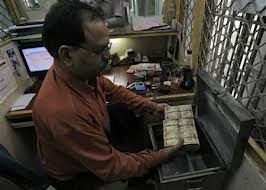 | « Back to article | Print this article |
 Indian banking is clearly at a turning point.
Indian banking is clearly at a turning point.
Let’s list some of the key changes we will see in the next few years.
One, there will be new licences granted fairly soon leading to more competition.
Two, the need to conform to Basel III norms will mean that the entire sector needs to raise huge sums of money.
Three, banks are being encouraged to look at new instruments such as swaps and other derivatives.
Four, the RBI shows signs of tightening its norms with respect to bad loan recognition.
Five, new channels such as mobile money transfers are likely to become popular.
Put together, this could push the sector into a new orbit.
It will force the existing players to be more efficient in their operations and in their allocation of capital. Given the level of interference public sector banks face, they are likely to fall even further behind their private sector competitors.
The raising of vast sums of Tier 1 capital will be a headache.
It could mean stake dilution, which would be a political problem for public sector undertakings.
The government simply doesn’t have the kind of cash to spare that it would require to maintain the level of current stake holding while re-capitalising to requisite levels.
For private banks, the capital needs will be much less and, given higher valuations, they should manage to raise the cash required without too much trouble.
Swaps are part of growing up for the banking sector.
Given greater openness on the capital account, more and more corporates and banks will be inclined to use these instruments.
They have obvious utility in many instances.
Suppose corporate entity A can get good terms on loans in currency X and entity B can get good terms on loans in currency Y.
If A actually needs the currency Y loan and vice-versa , a swap may be beneficial to both and reduce their joint costs.
Similarly, being able to swap a floating rate for a fixed one may suit specific companies with specific types of cash flow.
However, swaps are also dangerous and they can lose huge sums if mismanaged.
There is no way to learn to use swaps without taking that risk and it is very likely that there will be mistakes made along the way.
Banks will have to develop competencies